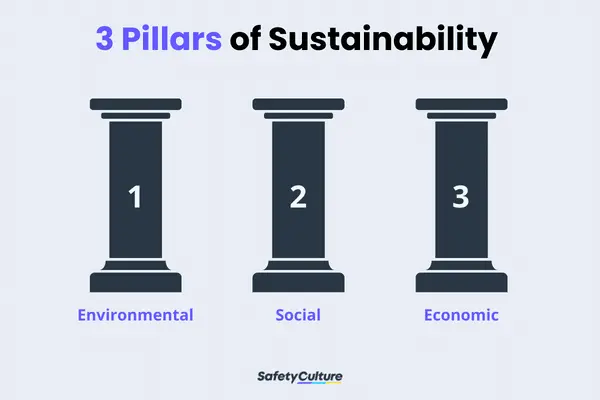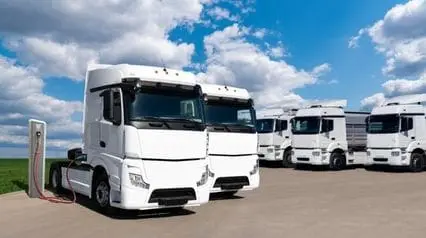What is Sustainable Logistics?
Sustainable logistics, also known as green logistics, refers to the various actions taken to minimize the environmental impact of companies in the supply chain, from processing raw materials to delivering the final product to the consumer.
The concept was developed in the early 1990s as social awareness about ecological problems, particularly global warming, started to grow. Today, more and more companies in different sectors are adopting better logistical measures aimed toward sustainability.
Importance
Transport, the top requirement in logistics, is one of the biggest causes of carbon dioxide emissions. But it isn’t the only driving force of greenhouse gas production in this industry. Because the environmental consequences are much too grave for everyone if left unchecked, sustainable logistics and supply chain management should be a top priority.
- Lowers overall emissions – Every mile traveled equals additional greenhouse gas in the atmosphere. One can greatly reduce carbon footprint by implementing ecologically sound practices such as using renewable energy for machinery or pre-planning routes for delivery.
- Reduces waste – Aside from fuel, transport vehicles and other machines have parts that undergo wear and tear over time. With green solutions, the life expectancy of these materials will increase. A simple yet effective sustainable logistics example for this is going paperless.
- Aligns with regulations – Ever since the term sustainability became a household name, numerous policies have been drafted and made into law in different countries. Failure to adhere to these rules means fines, penalties, and even criminal liabilities.
- Improves customer relations – The public expects social and environmental responsibility from the companies they patronize. And with the advent of social media, good practices will be well-regarded by millions. Bad decisions, on the other hand, will be shunned in an instant.
- Increases profits – Admittedly, going green can be quite expensive. But with good sustainable logistics management, companies will see a huge return on investment in the long run.
Principles of Sustainability

3 Pillars of Sustainability
Sustainability is defined as development that provides the needs of the people today while making sure people’s needs in the future are also ensured. It has three pillars:
- Environmental (planet) – Refers to reducing carbon footprint and minimizing waste.
- Social (people) – Represents activities that serve and are supported by various stakeholders; and
- Economic (purpose and profits) – Aside from actual earnings, this also pertains to honesty and accountability in terms of rules and regulations.
An activity is considered truly sustainable when all three elements are taken into consideration and equally advocated.
Implementation
The aforementioned goals can only be achieved by fully understanding the various sustainable logistics practices. Different companies may have specific processes, but most follow these basic steps:
- Stakeholders Mapping and Engagement – It is important to know who the stakeholders are (other suppliers, employees, and customers) and understand their concerns. Holding a dialogue with them regarding aspirations and guidelines will run smoother once the proper mapping is done.
- Measurement of Key Performance Indicators (KPIs) – Gathering quantitative data on current measures like energy consumption, water use, and delivery times is a critical strategy. By identifying this, the subsequent steps can be managed better.
- Goal Setting – Based on the initial KPIs, companies can start working on their objectives. Although it is nice to have huge ambitions, it’s best to start with small, realistically achievable ones.
- Priority Setting – To address the issues surrounding the environment, society, and economics, several goals are set. Admittedly, it is hard to work on all of it immediately. Ranking these objectives from the most important to the least consequential is more feasible.
- Action Plan and Execution – This contains a detailed description of the task, corresponding timelines, the people involved in the work, and expected results.
- Evaluation – Based on the initial assessment and the results of the executed actions, companies can now see their successes and failures and make the necessary adjustments and corrections.
The path to sustainable logistics and supply chain management is complex. The steps mentioned above are a continuous cycle, often repeated for improvements and aimed at more ambitious goals.
Best Practices
Finding a good balance between speed, cost, and reliability, along with environmental and societal values, can be challenging. But some large corporations have started working on this endeavor by integrating the systems listed below:
Utilize Data, Make It Transparent
Data should be at the heart of your operations. Digitizing this and sharing the information with people you work with ensures efficiency and promotes transparency.
Specific Examples:
- Digitize warehouse inventory through barcodes and sensors.
- Track routes for shipment and delivery with navigation systems.
- Use high-tech tools (apps) for coordinating with other suppliers.
Digitize the way you Work
Empower your team with SafetyCulture to perform checks, train staff, report issues, and automate tasks with our digital platform.
Get Started for FreeInvest in More Eco-Friendly Machinery
Choosing a better fuel source or upgrading to new models may cost a lot at first. But aside from compliance, you will soon reap the gains of your investment.
Specific Examples:
- Diesel is cheaper. However, it emits 13% more CO2 than gas or biofuel. Choose the latter options for environmental protection and fuel efficiency.
- Hire bike messengers for small deliveries.
- Consider buying electric cars for your fleet or opt for more fuel-efficient vehicles.
Go Local
This is one of the easiest ways to reduce your carbon footprint across the supply chain. Since everything is near, you can minimize your transportation requirements.
Specific Examples:
- Choose local suppliers for outsourced needs.
- Have pop-up warehouses where customers can pick up their products.
FAQs About Sustainable Logistics
Although many consider sustainability to be more important than profitability, there are some issues that business owners and managers fear, such as:
- increased cost;
- complexity of monitoring; and
- disconnect with other suppliers (e.g., others may not want to practice sustainability right now or follow different regulations in their location).
Then again, it is easier to address these issues through education, dialogue, and proper planning.
Definitely. Implementing business sustainability, as detailed above, can be done on a small scale. Using recyclable packaging, hiring bike messengers, and going paperless are simple measures that greatly reduce carbon footprint.
Transport is integral in logistics. Without this, the process fails. Because transport has the highest reliance on fossil fuels, the Environmental Protection Agency (EPA) of the United States has numerous guidelines set to ensure sustainability.
To be considered sustainable, transport vehicles for logistics should meet the following criteria:
- Affordability
- Fuel efficiency
- Occupancy
- Low to zero emissions
Check the EPA’s guide to learn more about green vehicles.




